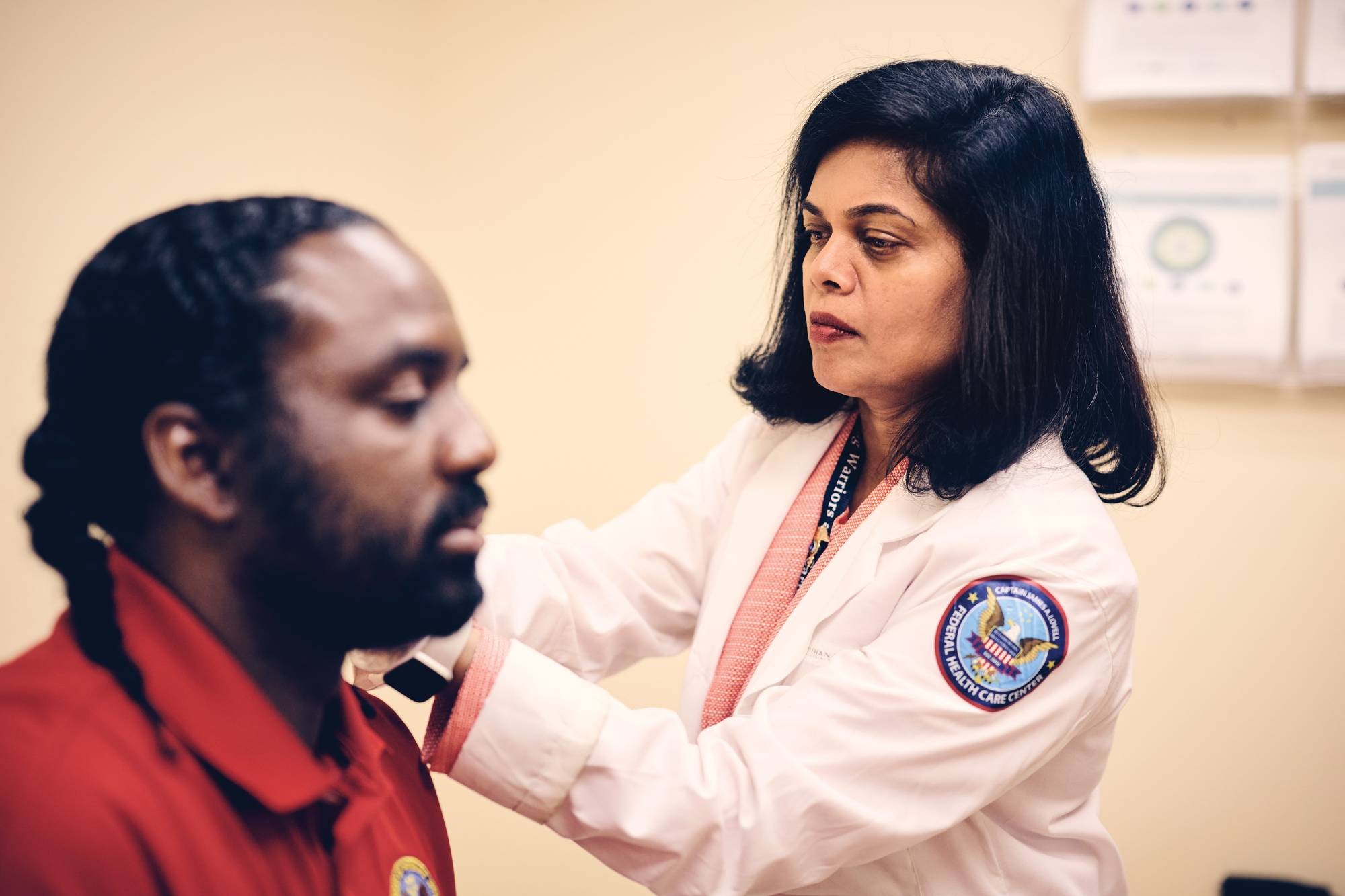Kim Westerman, MFA, EdD, is a travel and wellness writer, coffee expert and longtime university writing teacher based in Berkeley, California.
Author Page
When the weight of the world becomes a cardio-vascular crisis
Stress and Your Heart
ILLUSTRATIONS BY Chris Burnett
Health & Well-Being
You eat oatmeal for breakfast and salad with lean protein for dinner. You exercise almost every day and care for your heart health in every way you know how. Perhaps you even meditate. But if you have high stress — and who doesn’t? — you are still at risk of heart attack and other cardiovascular problems, many of which fly under the radar of routine preventive screening.
Stress is blamed for everything from indigestion to insomnia. But the vital organ for which it can be catastrophic is the heart. Despite decades of research, we are only now beginning to grasp the full extent of how stress can harm our bodies and even put our lives at risk.
Change of heart
Stress doesn’t just affect our emotional state and the way we feel; it actually changes the way our heart functions. Hormones, such as cortisol, that account for human “fight or flight” instincts can save our lives if we encounter a bear in the woods. But if our jobs or our relationships cause the same kinds of stress responses over time, we are at risk for chronic heart problems, some of which can be life-threatening.
Understanding the mechanics of how stress affects heart health is only half the battle. The more difficult task lies in acknowledging and addressing the stressors in our lives that aren’t always obvious. Chronic work stress, caregiving responsibilities, financial pressures, and even the constant buzz of social media and its attendant doomscrolling, can all keep our nervous systems in a state of persistent activation — a slow, steady drip of cortisol that takes a toll over time. Unlike the acute shock of sudden trauma or normal grieving processes, these less visible, persistent stressors often go unnoticed, but they are just as dangerous.
Patients don’t always make the connection between their lifestyle and the physiological effects they’re experiencing. For example, someone experiencing frequent migraines, insomnia or digestive issues might not realize these symptoms may be manifestations of chronic stress, and this person is even less likely to connect those issues to potential cardiovascular risk.
Treating these and other symptoms in isolation can obscure the underlying stress-related origins and stop the root causes from being addressed. Emerging research is reinforcing the importance of psychosocial support in heart health. A 2023 study published in JAMA Cardiology found that patients who participated in regular therapy or mindfulness-based stress-reduction programs tended to have lower blood pressure, fewer heart arrhythmias and improved outcomes after cardiac events. Social isolation and lack of emotional support were correlated with worse cardiac outcomes, especially among older adults. Stress, it turns out, doesn’t just damage the heart in a vacuum; it thrives in environments where people feel alone, unsupported or overwhelmed.
While eliminating stress is unrealistic — and even undesirable, since a little stress is necessary to protect us from danger — redefining our relationship to it is essential, according to Jessica Schultz, MD ’15, assistant professor of medicine, Cardiovascular Division, and medical director, Mechanical Circulatory Support Program, at the University of Minnesota. Strategies such as mindfulness practices, therapy, exercise, spending time in nature, deepening social connections and prioritizing rest can reduce the physiological burden of stress. Dr. Schultz encourages her patients to think of stress management as “preventive medicine,” just like a daily walk or a fiber-filled breakfast.
Stress doesn’t just affect our emotional states and the way we feel; it actually changes the way our heart functions.
Handling the stress hormone
Stress has short-term and long-term effects on the heart, explains Aamir Tirmijisaiyed, MD, a physician in Chicago Medical School’s Internal Medicine Residency program at the Captain James A. Lovell Federal Health Care Center. Stress activates our hypothalamus and pituitary glands, both of which regulate bodily functions with the goal of maintaining homeostasis — internal stability in the context of constantly fluctuating external conditions. When the hypothalamus and pituitary glands are activated, they tell the adrenal glands to produce cortisol (aka the “stress hormone”), which, in turn, prepares your body to make more energy available to deal with stress, which your body reads as a threat to its well-being. In the short term, this works fine, as it is akin to rapidly responding to any emergency in order to get out of danger.
But in the long term, Dr. Tirmijisaiyed explains, “If your body is being asked repeatedly to respond to stress, your heart rate increases, your blood pressure goes up, and the oxygen demand on your heart becomes higher, then your heart starts to become overworked.”
Taking on the leading cause of death
Cardiovascular disease remains the leading cause of death worldwide, and for years, we’ve blamed the usual suspects: poor diet, lack of exercise, smoking. But we’re starting to understand there might be a more insidious trigger: The short-term effects of stress can easily become chronic and long term, making the problem more difficult to treat.
“Everyone is at high risk for stress; it’s how we deal with stress that matters,” Dr. Schultz says. “We know the traditional risk factors — diabetes, high blood pressure, obesity — but stress creeps up on people, and if you’re dealing with any of those issues and stress on top of them, your cardiovascular risk is multiplied exponentially.
“Stress-induced cardiomyopathy is an extreme version of heart failure that needs to be addressed preventively even prior to known genetic predispositions. We still don’t really know why some patients can withstand certain physical or emotional stressors, and others develop life-threatening cardiovascular problems as a result.”
Dr. Schultz suggests some choices we make in the course of a day might be even more consequential long term. She cites high caffeine from energy drinks, which she calls “an extreme stressor,” as very detrimental to one’s health. They may seem benign, she says, but the effects of newer drinks on the market are devastating to heart health. Also: ultra-processed foods. Dr. Schultz says that while most of us know Cheetos are bad for us, we don’t realize trans fats and high-fructose corn syrup, which most ultra-processed foods contain, can take years off your life.
“If your body is being asked repeatedly to respond to stress, your heart rate increases, your blood pressure goes up, and the oxygen demand on your heart becomes higher, then your heart starts to become overworked.”
How grief can stress the heart
Lest you think a heart can’t actually break, Dr. Tirmijisaiyed wants people to know: “Broken heart syndrome is a real thing.”
A former patient, a middle-aged man who had recently lost his son, presented in the office with severe edema in his lower extremities. Dr. Tirmijisaiyed says, “It’s easy to prescribe a diuretic that will address the edema, but it was also important to educate this patient on what grief, which is an acute form of stress, can do to our bodies.”
Broken heart syndrome has a medical name — takotsubo cardiomyopathy — and it’s when stress actually causes the structure of your heart to change in such a way that part of it is reduced in function. Gagandeep Singh, MBBS, a resident physician at Chicago Medical School, says he has seen patients come in with symptoms of possible heart attack, such as chest pain and shortness of breath, commonly accompanied by EKG changes, ballooning of the heart on an echocardiogram and clean coronary arteries. Cardiologists are trained that the next step is to look for coronary artery disease (blockage of the arteries that supply blood to the heart) — definitive diagnosis requires an invasive catheterization — and if that test comes back clean, cardiomyopathy is often the culprit, and it is often caused solely by stress.
But Dr. Singh says the step of diagnosing cardiomyopathy often goes undone. “If a patient’s EKG and catheterization don’t signal trouble, then some doctors assume a patient is fine,” he says. “But when they dig deeper, as with a cardiac MRI, they often learn that heart function is very low, despite the good EKG and clear arteries, and then, medications are often needed to help improve heart function.”
Cardiomyopathy can be triggered by a sudden surge in epinephrine and norepinephrine, often in response to an emotional trauma such as the death of a loved one or some other tumultuous event. The heart muscle temporarily weakens and balloons out, usually in the left ventricle, which is the main pumping chamber. Dr. Singh says that whether this is a short-term, acute problem or a more debilitating, longer-term problem depends on what you do next: “Getting to the root causes of stress and treating it just as you would any other health problem is critical. Prolonged overworking [of the] heart puts you at risk of multiple cardiovascular pathology like heart attack, cardiomyopathy, arrhythmia and stroke.”
The heart is a resilient organ, but it’s also deeply responsive to our emotional lives. Taking care of your heart means more than lowering your cholesterol or hitting your step goal; it also means cultivating inner peace, purpose and emotional balance. Because stress doesn’t just weigh on your mind — it also weighs on your heart.
Published November 21, 2025

